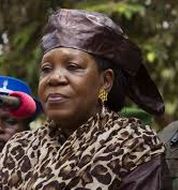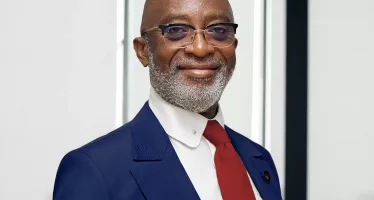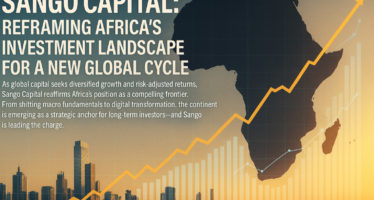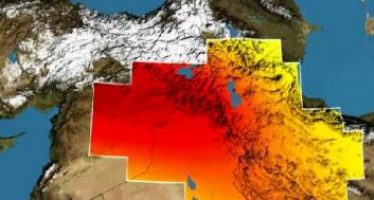Catherine Samba-Panza: Determined to Bring Peace and Democracy
 She promises elections and works vigorously towards that ultimate goal, but will not stand as a candidate. President Catherine Samba-Panza of the Central African Republic is trying to rally all stakeholders behind a concerted effort to pacify the warn-torn country and rebuild its wrecked civil society. She is bravely fighting an uphill battle.
She promises elections and works vigorously towards that ultimate goal, but will not stand as a candidate. President Catherine Samba-Panza of the Central African Republic is trying to rally all stakeholders behind a concerted effort to pacify the warn-torn country and rebuild its wrecked civil society. She is bravely fighting an uphill battle.
With help of a United Nations peacekeeping force, President Samba-Panza hopes to stem the political violence. However, the Anti-balaka rebel movement is gaining strength and now regularly strikes in the capital Bangui. Meanwhile, former fighters of the disbanded Séléka rebel movement run amok in the countryside.
Though initially sectarian in nature, the violence in the Central African Republic has become indiscriminate. Over the past year, the United Nations repeatedly warned that a full-blown civil war is in the making and appealed to all sides to lay down arms. However, the irregular militias lack a clear command structure and are difficult to engage with in talks.
President Samba-Panza has asked the UN and France for help in rebuilding her country’s virtually non-existent armed forces. Great care is being taken to form an army that represents all ethnicities and welcomes former rebel fighters into its ranks. At present, the Central African Armed Forces has as many decrepit tanks as words in its name – four.
“Fighting what has now become common banditry, the Samba-Panza government needs help in checking the rebels’ progress in order for a process of national reconciliation to take place.”
President Catherina Samba-Panza was appointed interim head of state on January 23, 2014 after her name was picked from a list of eight candidates by representatives of both rebel movements. The National Transitional Council, set up to function as an interim parliament, subsequently sanctioned her appointment after two rounds of voting. Mrs Samba-Panza is non-partisan, a corporate lawyer by trade, and a successful businesswoman.
She has incessantly called for both Anti-balaka and Séléka rebels to cease fighting and return to the negotiating table without fear of reprisals. President Samba-Panza has also said that the violence is not so much inspired by religious differences as it is caused by abject poverty and a failure of governance. She aims to remedy that.
Attempts to assuage the Séléka militias backfired with the appointment of a Muslim prime-minister. The rebels were, in fact, outraged as they do not consider Prime-Minister Mahamat Kamoun one of their own. As a result, the group declared war on President Samba-Panza’s government of national unity. Not to be outdone, the Anti-balaka group, drawing its support from the Christian community, also intensified fighting finding an excuse in unsubstantiated accusations against President Samba-Panza in regard to the alleged pilfering of aid money.
In between, an embattled president is trying to keep a nation together seemingly bent on self-destruction. However, what President Samba-Panza does know is that the Central African Republic, notwithstanding all its problems, remains a viable country. The state may indeed have failed miserably in the past, President Samba-Panza is determined to finish both her mandates: To end the cycle of violence and to pave the way to democratic elections in 2015.
It is this almost single-minded determination that merits international support. Fighting what has now become common banditry, the Samba-Panza government needs help in checking the rebels’ progress in order for a process of national reconciliation to take place. The price for not actively supporting the transitional government is the birth of yet another failed state and a possible future haven for extremists.
You may have an interest in also reading…
Invest Africa: Six Reasons to Choose Ghana
Being a top-rated country for almost everything — from cost of doing business to airport services — Ghana has a
Sango Capital: Reframing Africa’s Investment Landscape for a New Global Cycle
As global capital seeks diversified growth and risk-adjusted returns, Sango Capital reaffirms Africa’s position as a compelling frontier. From shifting
Making Every Drop Count: Reducing Water Loss in the Middle East and North Africa Region
The problem of water loss has become an even greater challenge for public utilities throughout the Middle East and North

















































































